 Larnaca-based low-cost carrier Cobalt is all set to stretch its wings on June 1 starting with flights to Greece and the UK.
Larnaca-based low-cost carrier Cobalt is all set to stretch its wings on June 1 starting with flights to Greece and the UK.
Chairman Gregory Diacou said after Cobalt was issued its Air Operator Certificate (AOC) on Wednesday: “Today marks the renaissance of the Cypriot aviation industry”.
He added: “We are proud to play our part in Cyprus’ long aviation heritage.
“The thousands of messages of support that we have received during the recent weeks from Cypriots here and abroad proves that there is tremendous enthusiasm backing Cobalt as the country’s new national carrier.”
The Civil Aviation Authority issued Cobalt’s AOC after successfully completing a test flight from Larnaca to Heraklion carried out with its first Cyprus-registered Airbus A320.
Cobalt is scheduling the launch of operations to Athens on June 1, with flights to the UK and other European destinations starting later on that month.
At the same time, he highlighted the fact that, by the end of June, Cobalt will add another three aircraft to its fleet, raising the total number to four.
The chairman stressed that the company also plans to launch operations to non-European destinations, such as Israel, Lebanon, Russia, Iran and Egypt in the very near future.
“Since the demise of Cyprus Airways, our national air traffic rights to these countries have been lying dormant,” Diacou said.
“These are significant economic assets that we must now utilise in order to support the development of the Cypriot tourist industry and the broader economy.”
Diacou also said that, prior to their first official flight, they have generated more than 100 new jobs locally and that hundreds more will follow.
“Furthermore, we very much appreciate the professionalism of the Cypriot civil aviation authorities in handling the AOC process so effectively and thank them for their support.”
Blog
-

Cobalt to fly from June
-
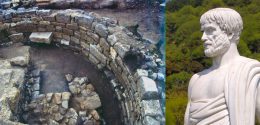
Great philosopher Aristotle’s tomb found
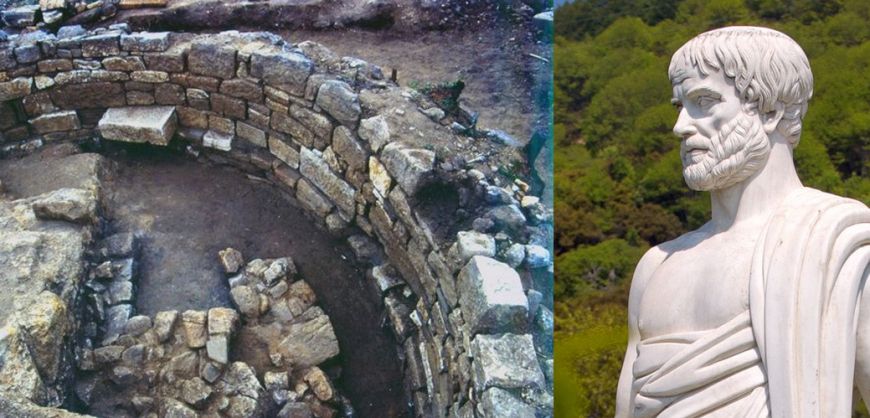 Greek archaeologists announced they have discovered the tomb of ancient Greek philosopher, and one the greatest in the world, Aristotle. After years of meticulous excavations at the ancient site of Stagira, located in central Macedonia, near the eastern coast of the Chalkidiki peninsula, archaeologists said that the domed building and altar unearthed in 1996 belong to the great philosopher.
Greek archaeologists announced they have discovered the tomb of ancient Greek philosopher, and one the greatest in the world, Aristotle. After years of meticulous excavations at the ancient site of Stagira, located in central Macedonia, near the eastern coast of the Chalkidiki peninsula, archaeologists said that the domed building and altar unearthed in 1996 belong to the great philosopher.The discovery of the tomb of Aristotle was announced by archaeologist Kostas Sismanidis, according to whom the findings from the excavation of 1996 in the region point to the conclusion that the tomb belongs to Aristotle.
‘I have no hard proof, but strong indications lead me to almost certainty’, said archaeologist Kostas Sismanidis. He claimed all the indications, from the location of the tomb, the period it was erected, its public character are conclusive that the edifice is indeed Aristotle’s tomb.
-

Greek Gymnast Eleftherios Petrounias Wins Gold and Makes History at the European Gymnastics Championships
 25-year-old Greek Champion Gymnast Eleftherios Petrounias, won gold at the European Gymnastics Championships in Bern, Switzerland. On rings, he gathered 15,866 points, becoming the first athlete to win the gold medal back-to-back since Yuri Chechi in the 1996 Atlanta Olympics. Rings, are considered one of the most difficult disciplines in artistic gymnastics due to the upper-body strength requirements.
25-year-old Greek Champion Gymnast Eleftherios Petrounias, won gold at the European Gymnastics Championships in Bern, Switzerland. On rings, he gathered 15,866 points, becoming the first athlete to win the gold medal back-to-back since Yuri Chechi in the 1996 Atlanta Olympics. Rings, are considered one of the most difficult disciplines in artistic gymnastics due to the upper-body strength requirements.“Let’s go for the European finals,” wrote Petrounias on social media before taking the podium.
-
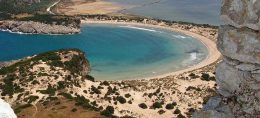
The Peloponnese in Greece is the best place in Europe to visit in 2016
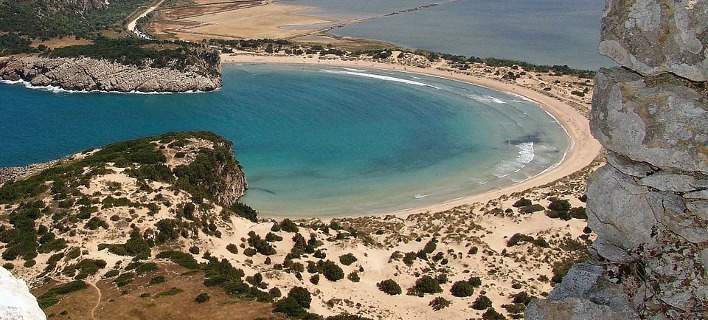 Travel guide publisher Lonely Planet has released its annual list of the best places to visit in Europe, this year opting for a mix of the usual suspects (Venice, the Dordogne) and a scattering of off-the-beaten track places such as the Dutch island of Texel.
Travel guide publisher Lonely Planet has released its annual list of the best places to visit in Europe, this year opting for a mix of the usual suspects (Venice, the Dordogne) and a scattering of off-the-beaten track places such as the Dutch island of Texel.Topping the list is the the Peloponnese, a region often overlooked by travellers to Greece, who tend to visit the islands or build a sightseeing trip around Athen’s iconic Acropolis.
The region is described as “an affordable enclave of magnificent ancient sights like Olympia, Mycenae and Mystra”. The recently opened Menalon trail provides a new way to explore the region, which is popular with hikers.
-
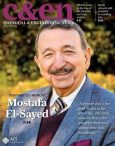
International Conference on Chemical Sciences & Applications
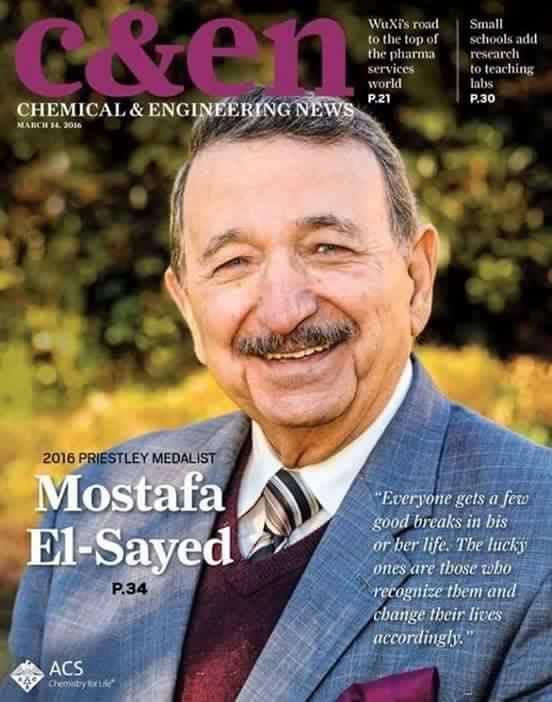 International Conference on Chemical Sciences & Applications (ICCSA-2016) which will be held in 6-9 August 2016 Alexandria – Egypt.
International Conference on Chemical Sciences & Applications (ICCSA-2016) which will be held in 6-9 August 2016 Alexandria – Egypt.The ICCSA-2016 aims to bring together leading academic scientists, researchers and research scholars to exchange and share their experiences and research results about all aspects of chemical sciences. It also provides the premier interdisciplinary forum for researchers, practitioners and educators to present and discuss the most recent innovations, trends, and concerns, practical challenges encountered and the solutions adopted in the field of chemical sciences.
In addition the scientific sessions of our conference, there will be social activities which include city tours, cultural nights etc. We encourage you to bring your family, they also will enjoy of visiting one of the most important historical and coastal sites in Egypt and the world.
We look forward to greeting you at the ICCSA-2016 conference in Egypt.
-
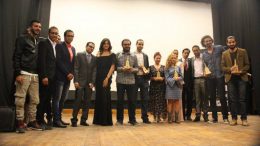
Alexandria Short Film Festival supports Arab independent filmmakers
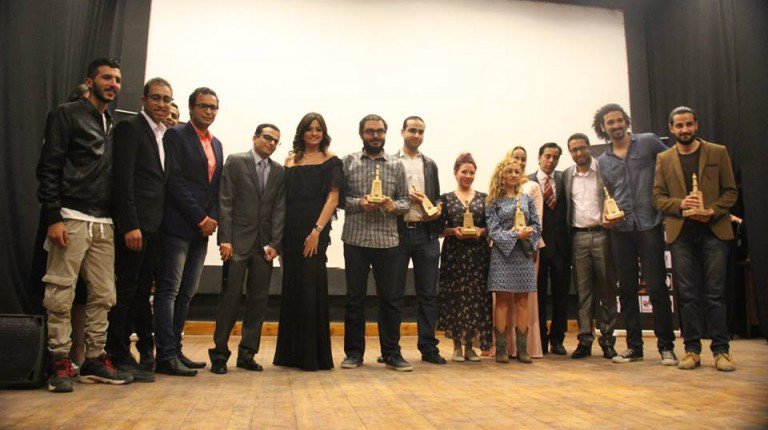 Hosted by Alexandria’s Fine Arts Museum, one of the leading cultural and artistic landmarks of the city, the second round of the Alexandria Short Film Festival wasfew days ago. Twelve Arab countries, including Egypt, Syria, Iraq, Morocco, Sudan, Saudi Arabia, Tunisia, Palestine, and Algeria participated with 73 short films and documentaries.
Hosted by Alexandria’s Fine Arts Museum, one of the leading cultural and artistic landmarks of the city, the second round of the Alexandria Short Film Festival wasfew days ago. Twelve Arab countries, including Egypt, Syria, Iraq, Morocco, Sudan, Saudi Arabia, Tunisia, Palestine, and Algeria participated with 73 short films and documentaries.Under the honorary supervision of well-known producer Mohammed El-Adl, the jury included the actress Bushra, the director Amir Ramses, and the cinema critic Safaa El-Leithy who were responsible for evaluating the films and selecting the winners.
The festival’s goal is to spread cinematic culture in Alexandria and introduce various genres of short films to different social classes in Egyptian society. In addition, the festival pays great attention to Arab cultural exchange by screening animated films, documentaries, and short films from different Arab countries. The festival also organises some free artistic workshops and seminars during and after the festival to allow novice filmmakers to improve their talents and develop their skills.
“The whole thing started last year when three independent directors found out that short films weren’t the main focus of any big festival in Alexandria,” said Mohammed Sadoon, an independent filmmaker and one of the festival’s main founders.
“We decided to self-finance the first round of the festival and we invited some celebrities such as Egyptian actor Khaled Abol Naga, director Ayten Amin, and film critic Magdy Al-Tayeb who volunteered to watch the movies and judge them,” he added.
Last year, only 45 Egyptian and Arab movies participated in the festival. However, the directors had to pay for their transportation and accommodation in Egypt due to the lack of financing. Obtaining support from the government was not an easy task at the beginning because governmental institutions prefer to support organisations, not individuals.
“Everything was different this year because we received EGP 10,000 in financial support from the Ministry of Youth and Sports. We also received support from Alexandria’s Fine Arts Museum, which hosted the opening night, the finale, and the screenings,” he added.
The preparations for the festival took several months. The “watching committee” consisted of seven directors who were responsible for watching all 300 movies that applied to participate in the festival and for choosing the best. Then, the selected movies were submitted to the film censorship committee for approval. “No red lines were imposed on us regarding the selection of the participating movies, however, we were asked to notify the audience of any adult-only films,” he noted.
The best documentary award went to the Syrian movie “Searching For Abbas Kerostamy”, which was directed by Ahmed and Mohammed Malas. The award for the best feature film went to Egyptian director Sameh Alaa for his movie “Stick Abla Margo”. The Arab Creativity Award went to Iraqi director Bahaa El Kazmy for his movie “Still Calling”.
The directors of the festival are now organising two free workshops for young artists who are interested in the different filmmaking fields. One for teaching artistic and cinematic criticism and another one about producing movies using mobile phones.
“Starting from next year, the festival will be completely supported by the Ministry of Culture. I believe this must be considered a victory not only for independent filmmakers in Alexandria, but also for the audiences of the short films from different social and cultural backgrounds,” he added.
-
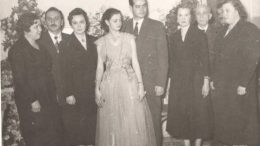
The Aleksandrinke: Slovenians in Egypt
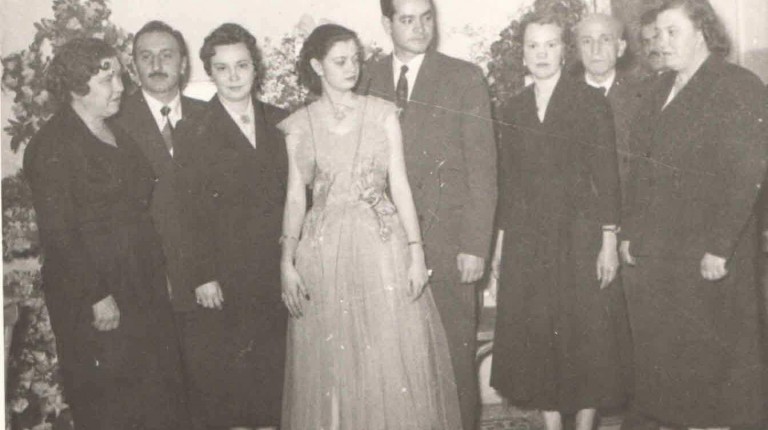 In a previous interview with Daily News Egypt, Slovenian ambassador to Egypt Tanja Miskova told the story of the Slovenians who migrated to Egypt in the 20th century in the face of the myriad of wars that plagued the former Yugoslavian countries at the time. To settle in Alexandria, where many of the migrants started to rebuild their lives, was to find a place with a better standard of living and new economic opportunities.
In a previous interview with Daily News Egypt, Slovenian ambassador to Egypt Tanja Miskova told the story of the Slovenians who migrated to Egypt in the 20th century in the face of the myriad of wars that plagued the former Yugoslavian countries at the time. To settle in Alexandria, where many of the migrants started to rebuild their lives, was to find a place with a better standard of living and new economic opportunities.The people of the Slovene region had seen their territory come under Italian rule after World War I, followed by an intense process of italianisation under fascism. When they immigrated to Egypt, many of the Slovenian women found employment as domestic workers in the households of Alexandrian-Italian families, with whom they shared a linguistic commonality. Notable Egyptian statesman and former UN secretary-general Boutres Boutres-Ghali was nursed by a Slovenian woman named Mijlena.
Most Slovenian men who came to Egypt, at the time, worked as electricians.
This vibrant and important aspect of Alexandria’s history, with its influx of Slovenian immigrants, produced a phenomenon known as Aleksandrinke.
The Slovenian Embassy in Egypt, with the collaboration of the ambassador and her assistant Christian Samir, facilitated the following interview with the granddaughter of a Slovenia woman who found herself in Alexandria in the middle of the 20th century. What follows is an abridged version of a conversation with Salwa Hegazy and her daughter, Amira. Salwa’s grandmother left Slovenia in the interwar period and arrived in Alexandria in 1932. Hegazy has established a social club for the descendents of Slovenian immigrants in Egypt.
How did your grandmother come to Egypt?
Salwa Hegazy: My grandmother was from Nova Gorica, located in western Slovenia on the border with Italy. She was born in the city of Bilje. Her family had a farm and they were kind of well off. My grandmother was married and had a daughter, but unfortunately all the men of the family were drafted by the Italian army as there were many wars. There were no men to help the family in their work on the farm. Moreover, the situation was not safe. So, around 1932, my grandmother, her mother, her sister and her daughter travelled to Trieste, in Italy. From there, they took a boat and came to Alexandria. At the time, Alexandria was full of foreigners including a large number of Italians. Also, the Slovenian community there was quite large as they had started heading to Egypt around 1800.
My grandmother’s sister found a job as a receptionist in a hotel called Cecil because she spoke more than one language including Italian and German. I am not sure if my grandmother also worked there or not, as her daughter was only five years old.
Is the Aleksandrinke phenomenon known in Slovenia?
Amira: my teacher [referring to the teacher who taught her Slovenian in a summer camp in Slovenia], which was also from Nova Gorica, knew about this phenomenon and asked me to send her some stuff regarding this phenomenon as her students study it.
SH: When I was visiting my grandmother’s city, I read an announcement by chance about making a march of solidarity that would be similar to that which my grandmother along with other Slovenians made to Trieste, from which they took boats to emigrate to cities all over the world. It was a nice surprise that they still remembered my grandmother’s people and still were making something for them.
How did Slovenians preserve their culture in the face of conflict?
SH: I recall a past incident when Slovenians tried to print Slovenian-language books [during World War II]. To this end, they wanted to establish a printing house faced with Germans [who controlled parts of the Slovenian territory at the time] who eventually eliminated 25% of the Slovenian cultural and education elite. To get around German control, Slovenians resorted to smuggling their books in barrels of wine, to allow people to read them, to preserve their identity and language. As you can tell, Slovenians spent their lives fighting to preserve their language and identity.
As far as I know, Egypt’s relation with the former Republic of Yugoslavia was very good, especially with former Yugoslavian president Josip Broz Tito. What about the presence of Abdel Nasser in Slovenia?
SH: When I went to Villa Bled in Slovenia, visited by Abdel Nasser, they still preserve a photo of him with Tito. I took a photo of it. Despite this strong relation, it is sad that people here now barely know about Yugoslavia. Moreover, they do not know about its separated countries. I remember when I went to present the papers regarding the Slovenian Club in Egypt at the Ministry of Social Solidarity, people, there, thought it was Slovakia instead of Slovenia. If you tell anybody here about Slovenia, he will not know anything about it. People know about Slovakia but not Slovenia.
The Slovenian ambassador to Egypt Tanja Miskova told Daily News Egypt that Slovenians in Argentina have very strong community and they place a strong emphasis on their children’s learning. Slovenians in the US, however, have assimilated into the dominant culture, and largely lost their historical identity. Can you tell us more about the Slovenian community in Egypt and the Slovenian Club that you are establishing?
SH: At the beginning, I did not know that the Slovenian community in Egypt is not very large. As they were very prominent in Alexandria in the past, I imagined that there would still be many of them here. When I asked in the embassy they informed me that the number has diminished significantly. Nonetheless, the embassy offered to help me despite being tempted to give up as I was disappointed.
I would like our children to know about their origins. Slavs, especially Slovenians were separated and forced to migrate in the face of many wars. So Yugoslavians, especially Slovenians tried to establish their own clubs in their new countries, where they could gather and preserve their culture and identity. You can find many Slovenians in Australia and Canada. There is a very big community of them in Argentina. Slovenia’s domestic population is 2 million, while, abroad, you can find 4 million Slovenians. A club for Slovenians helps to reunite the Slovenian diaspora. This is why I would love to do something here. In the end, even if the number of Slovenians is not very large in Egypt, I would like to establish a club for us.
Can you tell me more about the club and its members?
SH: It is sort of a closed group of people, some with Slovenian ancestry, some with a Slovenian passport. There are also two Slovenian men who are married to Egyptian women, and Egyptian men married to Slovenian women. The group also hosts Egyptian business people working with Slovenians.
Can you tell us about the bureaucratic difficulties the club has faced?
SH: In order to establish an official place to meet, we have faced difficult bureaucratic procedures. I do not know why it is taking is so long to approve the establishment of the club. I presented the papers and documents in May 2015. The idea came to me even a year before but I did not know to whom I should go. So, I went to the embassy with my grandmother’s birth certificate and her Yugoslavian passport which she had renewed until her death. The embassy helped us to establish legitimacy.
We started as 17 members when we firstly admitted the papers to Ministry of Social Solidarity and currently we have reached 35 members.
Does the club aim to spread the Slovenian culture among Egyptians?
SH: At the moment, no. We are a closed group of Slovenians, and one of our primary aims is for our children be connected to Slovenia. Perhaps, in the future, we might organise conferences to present Slovenian culture to the Egyptian public. The problem is that the country is small and nobody knows much about it. One thing I am happy about is that in Alexandria’s last film festival, Slovenian movies were shown.
How about your Slovenian language?
SH: My grandmother, aunt, mother and their friends used to talk between themselves in Slovenian. It was their secret language. My mother spoke Slovenian fluently. She also spoke French, as she was educated in a French school, and Italian, as her cousins spoke Italian, as well. She used to speak with my father in Italian. Slovenian is not a common language here and it is a bit difficult. I can only understand sentences and say short sentences, but I cannot speak fluently.
How did your daughter Amira come to learn Slovenian?
She was excited about my grandmother’s stories that I used to tell her and about our Slovenian origins.
I knew of a programme based in Slovenia that organised a annual summer camp for children with Slovenian origins who live abroad. Children can participate in the camp until the age of 14, coming to Slovenia to see the country and learn the language. Last summer, Amira applied and joined the camp. She enjoyed it a lot and she was interviewed on a Slovenian TV programme. She became more attached to the country, its language, and culture. Also, her brother became more attached as they were experiencing the stories they had heard from us when they were younger. When in Slovenia, my sons told others at the camp stories about Egypt, so I was happy about this intercultural connection between the two countries.
-
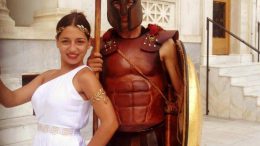
Greek Day celebrates culture, cuisine of Egypt’s Mediterranean neighbour
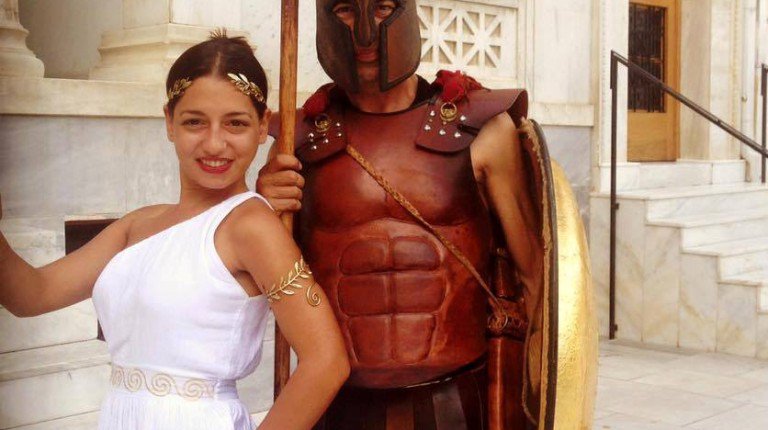 Greek culture has had a presence in Egypt for centuries, for as long as Greeks have been living in Egypt, particularly in Alexandria.
Greek culture has had a presence in Egypt for centuries, for as long as Greeks have been living in Egypt, particularly in Alexandria.Geographically, Egypt is close to Greece, and both Mediterranean countries have a lot in common.
To mark Greek National Day, the Community Services Association (CSA), in cooperation with the Greek Cultural Center in Egypt, organised an event on 15 April in Maadi called Greek Day.
Entrance to the event was free, and participants were welcome to join in celebrating Greek culture by tasting Greek food and dance performances and Greek-themed activities.
Delicious Greek cuisine was available, including “gyros” and “souvlaki”, which was served by The Greek, a restaurant located in Maadi. Wadi Food offered samples of their home-grown products that Greece is famous for, including homemade olive oil.
Greek music played throughout the event and the following dances were performed by the Greek Youth in Cairo: Sirtaki, Zorba, Kalamatiano, Frangosiriani, Ikariotikos and Pendozali.
Travco Holidays was there to promote travel to Greece and presented their vacation offers. Two festival goers won trips offered by Travco, including two free tickets to the Greek island of Mykonos.
-

2016 a bright year for Egypt’s gymnasts
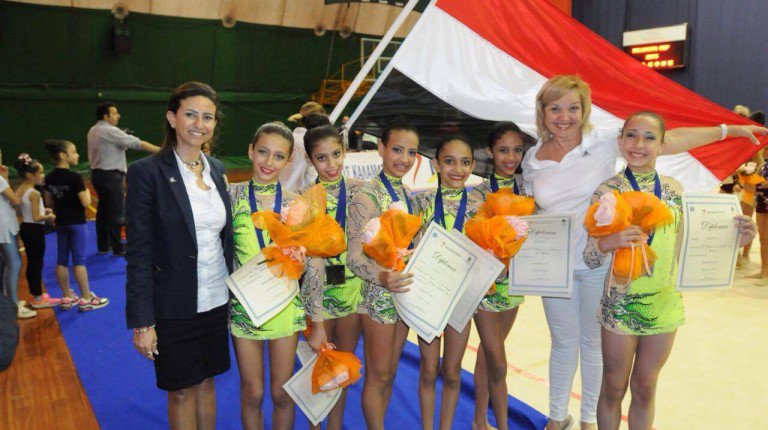 Egyptian female gymnasts have recently been making leaps and bounds in the competitive arena.
Egyptian female gymnasts have recently been making leaps and bounds in the competitive arena.This year, Sherine El-Zeiny won gold at the African Gymnastics Championships in the women’s individual all-around competitions. She is part of the national team.
At the same tournament, the national girls’ gymnastics team won in the junior teams’ division. In the juniors’ individual all-around competitions, Farah Ahmed and Farah Said won gold and bronze, respectively.
The 3rd International Rhythmic Gymnastics Tournament in Kalamata, Greece was another chance for Egyptian gymnasts to prove themselves this year.
Under the leadership of coaches Sarah Ismail, Mayar Ragab, and Russian coach Aala, as well as ballet coach Hany Hassan, the Egyptian girls’ team won two silver medals in both junior divisions: individual all-around and teams.
Farida Nadir, Tia Dia, Nermine Khaled, Malak El-Sherif, Salma Khaled and Yara Ihab make up the national girls’ team.
Another Egyptian gymnast, Mariam Selim, placed fifth in the individual all-around division at the tournament.
President of the Egyptian Gymnastics Federation Alaa Hamed and the head of its Technical Committee Noha Abdel Wehab showed their complete support and appreciation to the Egyptian gymnasts.
-
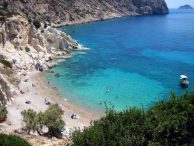
Chios named one of the best diving sites in Europe
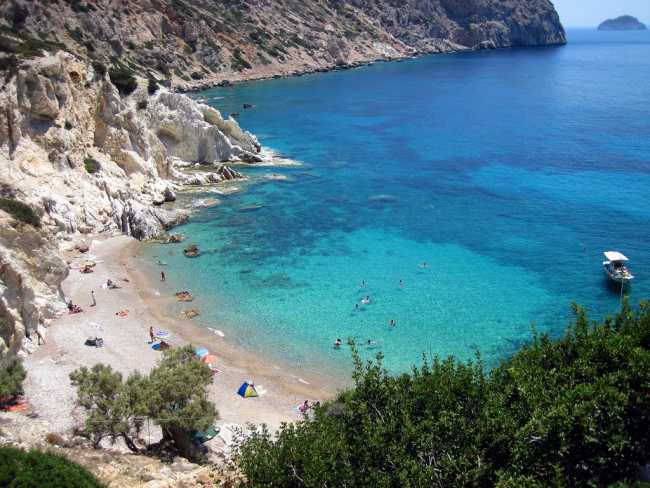 As the Greek summer approaches, an international distinction gives Chios a well-deserved and much needed boost.
As the Greek summer approaches, an international distinction gives Chios a well-deserved and much needed boost. One of the most beautiful islands of the Aegean, Chios was a travel destination for the conoisseurs, attracting high-profile tourists. As the homeland of many shipping magnates, and a place blessed with the mastique trees that have been central for its economy, the island has never relied too much on tourism, which has helped preserve its identity and authentic colours.
But now, a new wave of focused tourist is bound to visit Chios, as it is voted among the top 10 best dive sites in Europe. According to international diving website divein.com, Chios is the best place to scuba dive in Greece, containing “some of the most amazing underwater caves, colourful and large reef formations, vertical walls, beautiful underwater rock formations, and glorious shipwrecks. This place is a great dive site for beginner divers since the water is very visible and the temperatures are moderate, especially during the months of April through October”.
Chios has been at the epicenter of the current refugee crisis, as its close proximity to the Turkish shores have made the island one of the people smugglers preferred destinations. Last years, thousands of refugees arrived to the island and the tourism industry was worried about the effect that this factor would have on the economy. Such distinctions offer a valuable boost to the island’s status as an international destination, amidst an ongoing financial and humanitarian crisis.